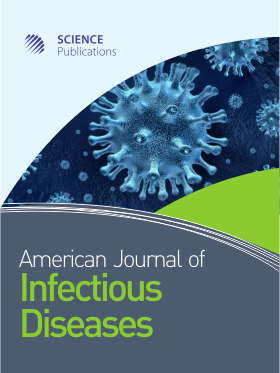Passive Transfer of HIV-1 Antibodies and Drug Resistant Virus during a Health Care Worker Accident: Implications for HCW Post-Exposure Management
- 1 Blood Systems Research Institute, Brazil
- 2 Federal University of Sao Paulo, Brazil
- 3 University of Washington, United States
- 4 Children’s Hospital and Medical Center, United States
- 5 University of Pittsburgh, United States
- 6 University of California, United States
Abstract
Problem statement: We studied in detail a case in which a nurse caring for an HIV-infected child suffered a deep-laceration accident with contaminated blood. Approach: The patient had been treated with zidovudine (ZDV) and the nurse became infected despite prophylactic use of ZDV initiated 2 h after the accident. A reactive anti-HIV-1/2 EIA and an indeterminate western blot (gp120/160 reactivity) were obtained from the nurse on the day of the accident, suggesting preexposure infection. However, a negative western blot and positive DNA PCR were documented 10 days after the accident and seroconversion occurred an additional two weeks later. Results: Phylogenetic analyses of HIV-1 tat and C2-C4-gp120 env regions confirmed that the nurse infected by two different HIV-1 strains present in the child. Strains present in both subjects revealed multinucleoside resistant HIV-1. Dilutional serological studies using 10 HIV-infected patients’ sera demonstrated that passive seroreactivity could occur with infusion of less than 1 uL of blood when highly sensitive assays are employed. Conclusion: This is the first well-documented case of passive HIV antibody detection after a percutaneous exposure. Reactive baseline serology should not be assumed to represent prior infection nor exclude prophylaxis. Transmission of drug-resistant HIV-1 corroborates the medical history and supports use of drug history and resistance testing to guide antiretroviral prophylaxis.
DOI: https://doi.org/10.3844/ajidsp.2008.244.256

- 5,669 Views
- 3,914 Downloads
- 0 Citations
Download
Keywords
- HIV-1
- passive transfer of antibodies
- health care work accident
- bottleneck
- transmission of resistant HIV-1
